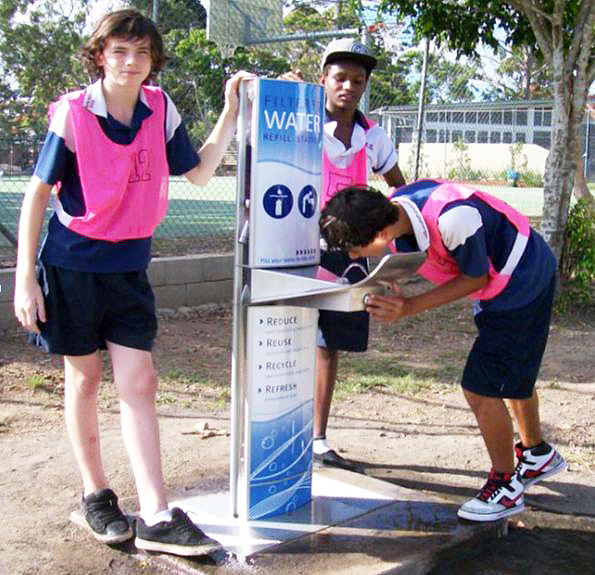Dehydration is a leading cause of fatigue and poor mental function, and the impact of dehydration on cognition and mood is particularly relevant for children, who have poor fluid regulation
By Suzy Barry
In a large proportion of mainland Australia, summers are long and hot. Even in southern Queensland, winters are short, and in locations like Darwin and Cairns, they struggle to earn the title of winter with their few weeks of sweater weather.
Government supported initiatives like Crunch and Sip, where state school students have some fruit and water in the classroom between breaks help to encourage healthy eating and hydration. When a child is pounding that playground playing tiggy or climbing on play equipment, water is just about the last thing on their mind. This is especially true if they have to line up for ten minutes for lukewarm water, or ‘walk safely along concrete paths’ back to the classroom for their water bottle. Australian students need water, and they need it to be clean, cool and readily available.
The Australian Drinking Water Guidelines are administered by a federal body: National Health and Medical Research Council. These minimum requirements determine the quality of drinking water in populated areas, with reticulated supplies (also called town water) supplying schools and public places.
Read the full article here


